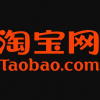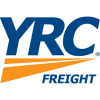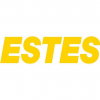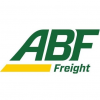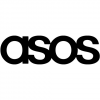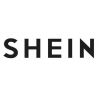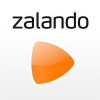Taobao - track order status
Keep track of Taobao parcels and shipments with our free service! All you need to do to track your parcel, is to enter the tracking number, and then the service will keep track of your parcel’s location in real time.
How do I track my Taobao parcel with 100Parcels.com?
- Find out the tracking number of your parcel;
- Enter the tracking number of your parcel in the field at the top of the page;
- Wait until the service checks the parcel data, it will not take long;
- View the search results and share them with your friends via social networking;
- If you enter your email address, we can notify you automatically of changes to the status of your parcel.
Taobao - information about online store
Taobao is a Chinese online shopping website, headquartered in Hangzhou, and owned by Alibaba. The site was founded by Alibaba Group in 2003. Taobao Marketplace helps with consumer-to-consumer (C2C) retail by supplying a platform for small organisations and individual entrepreneurs to open online shops that mainly cater to consumers in Chinese-speaking areas (Mainland China, Hong Kong, Macau and Taiwan) and abroad, which is made payable by online cellular phone accounts.
With over 1 billion product listings as of 2016, the combined transaction volume of Taobao Marketplace and Tmall.com reached 3 trillion yuan in 2017, more than that of all United States e-commerce websites combined. The Economist calls it "the country's most significant online market". Purchasers can evaluate seller backgrounds by the info available on the website, including remarks, complaints and rankings.
Taobao Marketplace (previously "Taobao") was introduced in May 2003 by Alibaba after eBay got Eachnet, China's online auction leader at the time, for US$ 180 million and became a major player in the Chinese consumer e-commerce market. To counter eBay's expansion, Taobao offered complimentary listings to sellers and introduced site features designed to act in regional customers' best interests, such as instant messaging for facilitating buyer-seller interaction and an escrow-based payment tool, Alipay.
In April 2008, Taobao introduced a newly committed B2C platform called Taobao Mall to complement its C2C market. Taobao Mall established itself as the destination for quality brand name products for Chinese consumers. Taobao Mall released an independent web domain, Tmall.com, and improved its focus on product verticals and enhancements in the shopping experience in November 2010. It became an independent service in June 2011 and altered its Chinese name to Tian Mao (Tmall) in January 2012. As of October 2013, it was the eighth-most gone to website in China.
In 2008, Taobao fueled the overall growth of the Chinese online shopping industry through the execution of the "Big Taobao" method with the goal of ending up being a provider of e-commerce facilities services for all e-commerce market participants.
In October 2010, Taobao beta launched eTao as an independent browsing engine for online shopping, providing item and merchant details from a variety of significant customer e-commerce sites in China. Online consumers can use the website to compare rates from various sellers and identify products to purchase. According to the Alibaba Group website, eTao provides products from Amazon China, Dangdang, Gome, Yihaodian, Nike China and Vancl, in addition to Taobao and Tmall.
In May 2011, Alibaba Group opened a retail store in Beijing under the Taobao Mall brand name. The five-story 25,000 sqm Taobao Mall iFengChao Furniture Showroom opened as an enhance to their online stores.
In June 2011, Alibaba Group Executive Chairman and previous CEO Jack Ma revealed that Taobao would split into 3 various companies: Taobao Marketplace (a C2C platform), Tmall.com (a B2C platform; then called Taobao Mall), and eTao (an online search engine for online shopping). The relocation was stated to be needed for Taobao to "meet competitive threats that emerged in the previous two years during which the Internet and e-commerce landscape has altered dramatically."
From 2012 onward, Taobao began to accept global Visa and MasterCard credit and debit cards; prior, just domestic banks were supported by AliPay.
On April 29, 2013, Alibaba revealed an investment of US$ 586 million in Sina Weibo. According to Reuters, the deal "needs to drive more web traffic to Alibaba's Taobao Marketplace, China's largest e-commerce website with a consumer focus." On August 1, 2013, Alibaba introduced Weibo for Taobao, which allows users to connect Sina Weibo accounts with Taobao accounts.
